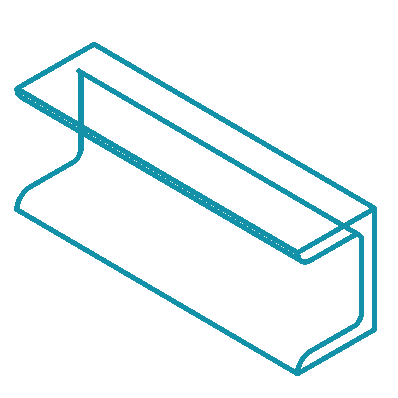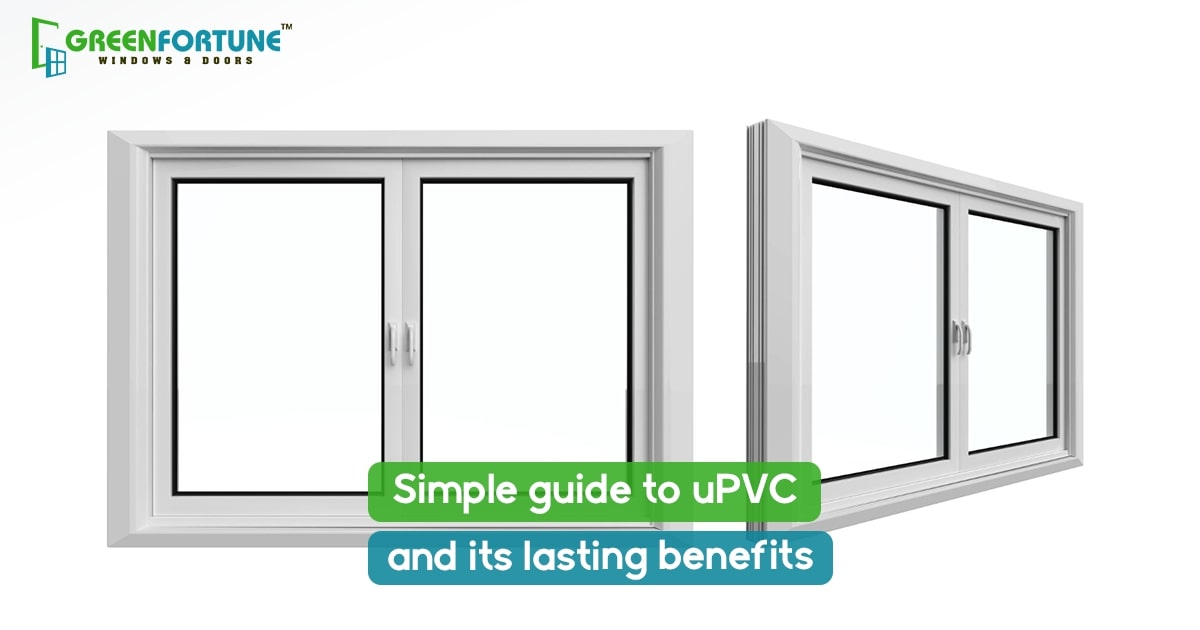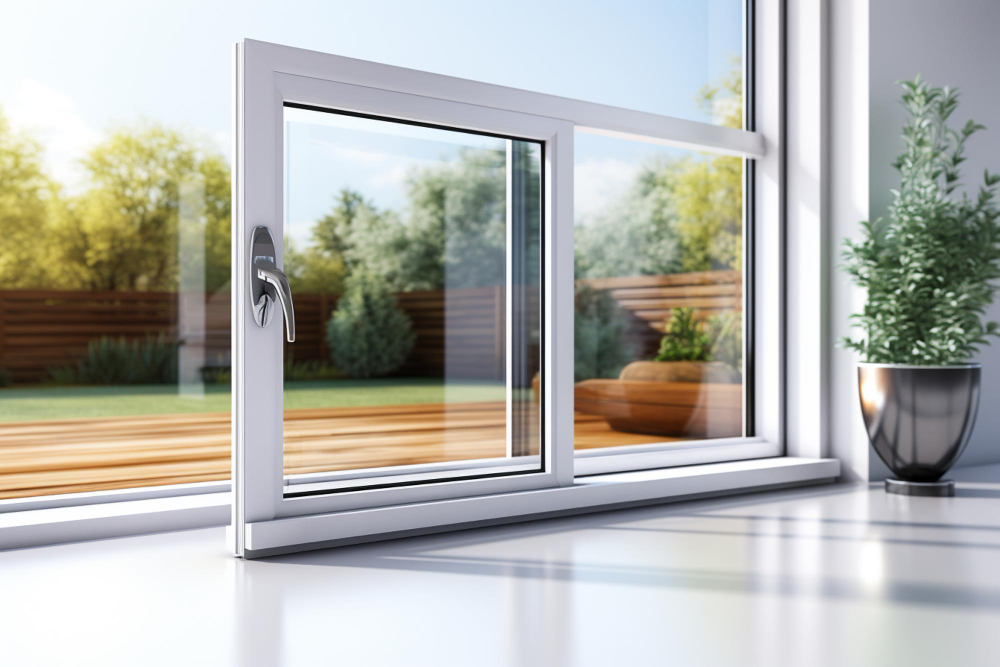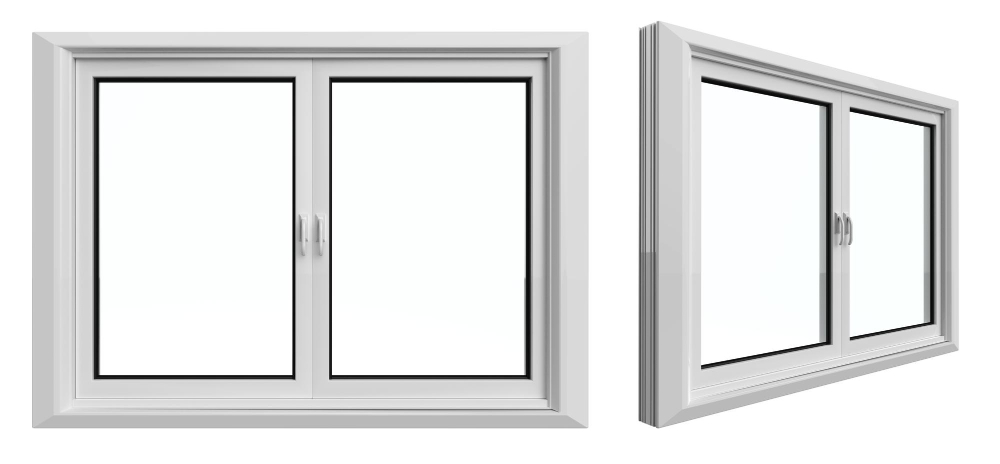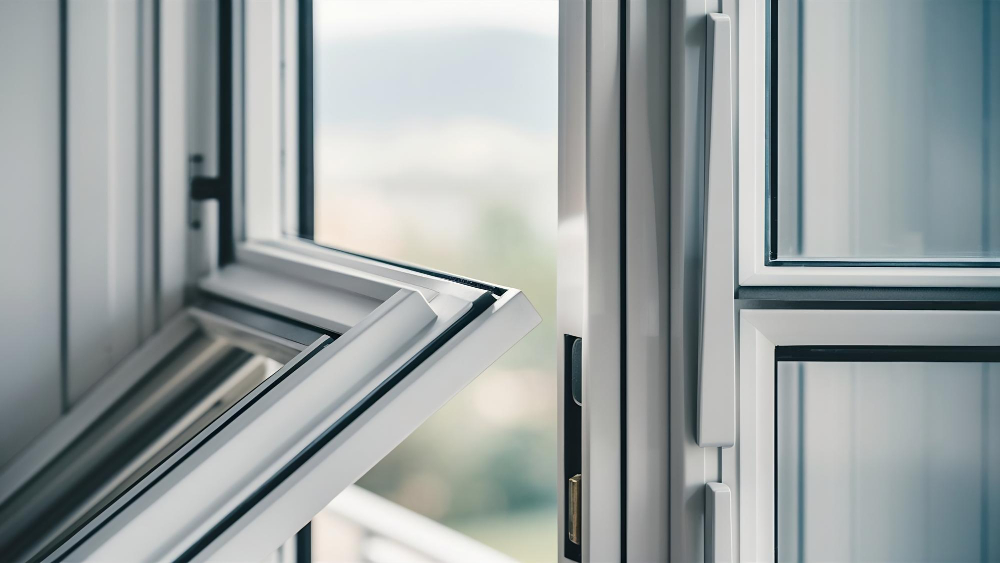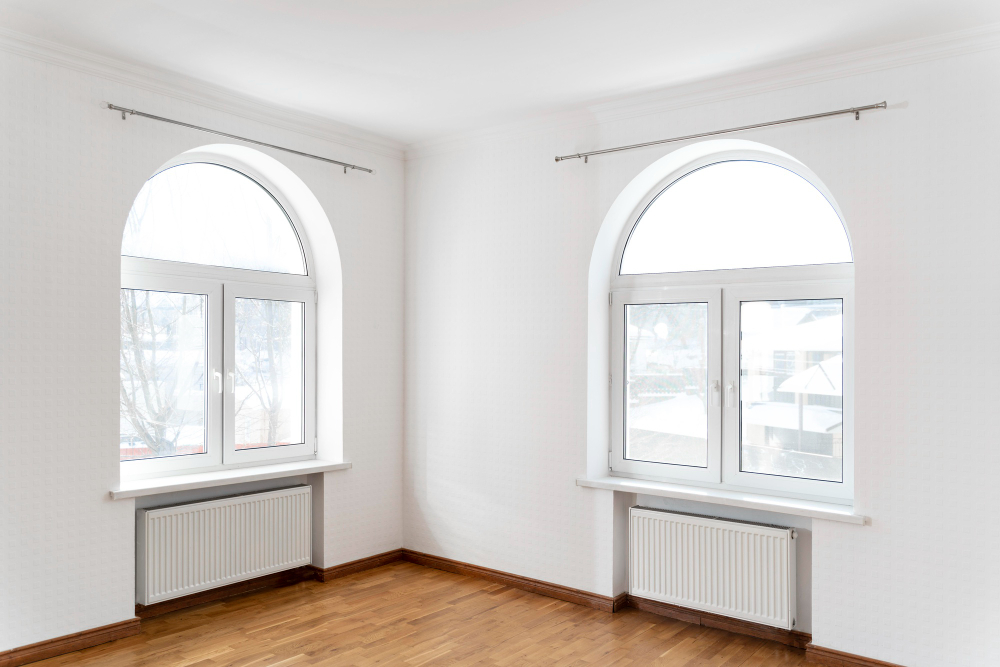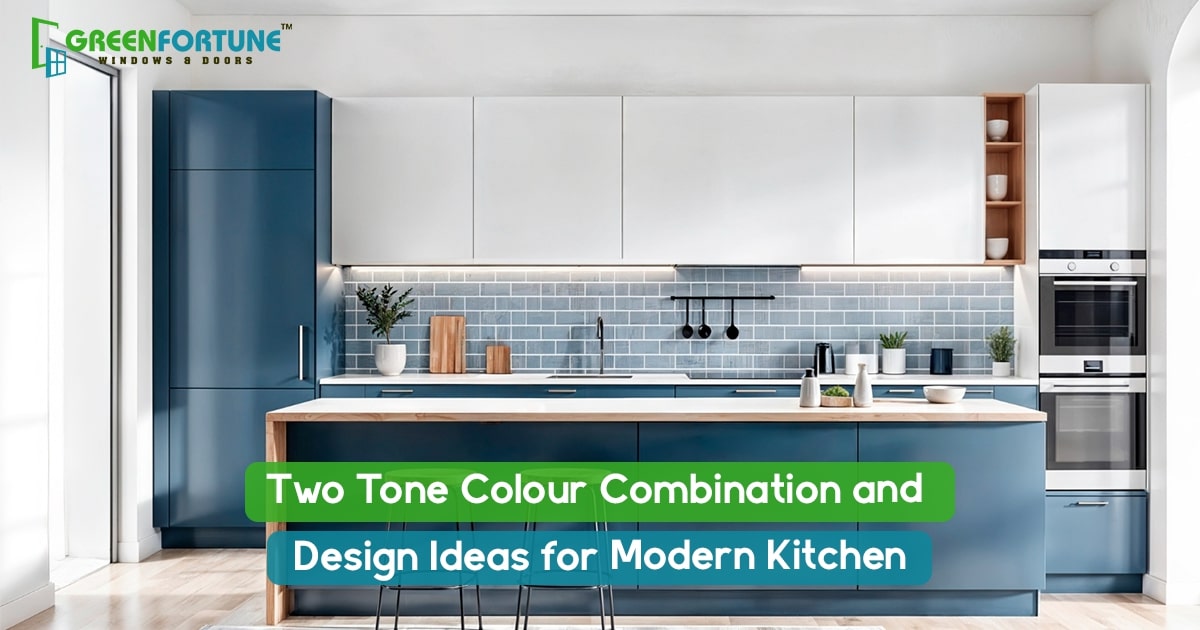
Best Two Tone Kitchen Ideas for Stylish and Functional Interiors
November 27, 2025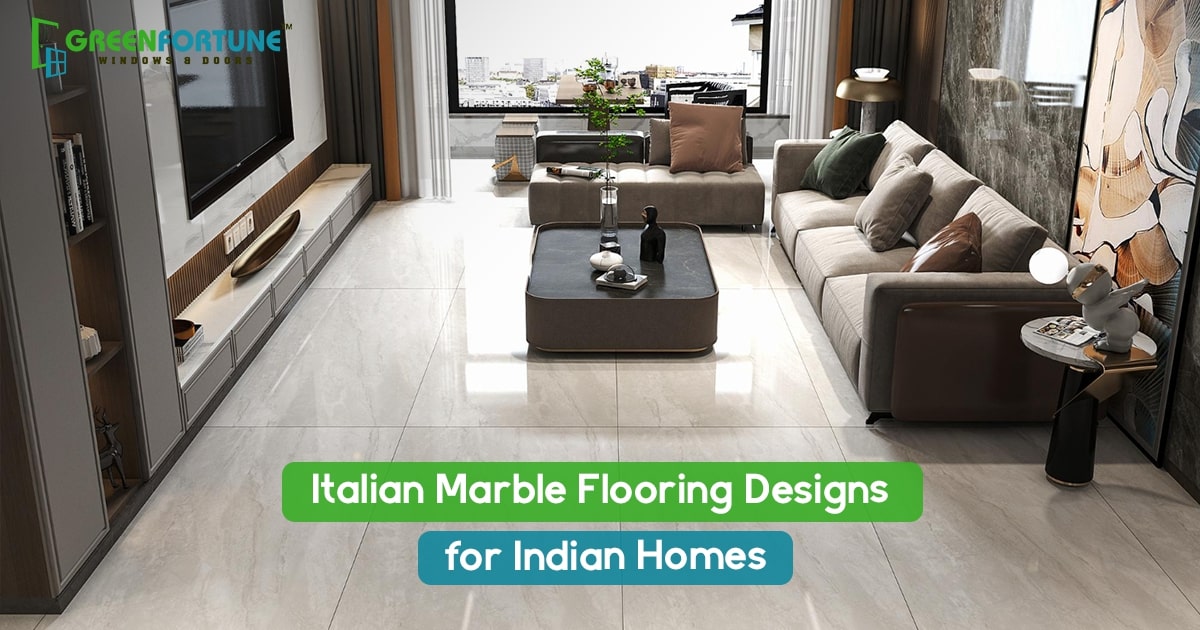
Italian Marble Flooring Designs for Living Rooms, Bedrooms & Hallways
November 28, 2025Many homeowners today struggle to choose the right window and door material. Wood looks elegant but demands regular polishing. Aluminium feels strong but often fails to insulate well. Traditional options either cost too much in the long run or need constant upkeep. This leaves people searching for something durable, affordable, and low-maintenance.
That is where uPVC steps in. Strong, weather-resistant, and long-lasting, it offers a perfect balance of comfort and performance. This blog highlights what uPVC is made of, how uPVC frames are manufactured, and all the major uPVC material benefits that make it a smart choice.
What is uPVC?
uPVC stands for unplasticised polyvinyl chloride, a rigid and highly stable form of PVC. Unlike regular PVC used in pipes or insulation, uPVC contains no plasticisers, which makes it stronger and more resistant to heat, chemicals, and weather elements. This rigidity is the main reason it is used in window frames, doors, plumbing, cladding, and even medical equipment.
Because it does not warp, crack, or expand easily, uPVC has become one of the top materials for modern construction. It is valued for its strength, energy efficiency, and long life. With increasing climate challenges, homeowners and builders now prefer materials that reduce energy loss and offer long-term savings. uPVC perfectly fits this need.
Composition of uPVC
The strength and stability of uPVC come from a carefully balanced combination of ingredients. While the main base is PVC resin, several additives enhance its performance:
Component | Role / Function |
PVC Resin | Makes up 80–85% of the composition; provides rigidity and the main structural base. |
Stabilisers | Protect the material from heat and sunlight during production and throughout its life. |
Fillers | Increase density and impact resistance; improve cost-effectiveness without losing quality. |
Pigments | Provide long-lasting colour, usually white or off-white; ensure a smooth, clean finish. |
Lubricants & Modifiers | Help during manufacturing by improving flexibility and ensuring a smooth, finished surface. |
Read more - 10 Must-Haves for Stylish Homes
How are uPVC Frames Manufactured?
Understanding how uPVC frames are manufactured helps homeowners trust the science behind their strength and longevity. The process is precise, quality-controlled, and technology-driven.
1. Mixing of Raw Materials
The PVC resin and additives are blended in large industrial mixers. This ensures a uniform mixture, which is essential for high-quality frames.
2. Extrusion of Profiles
The mixture is heated and forced through a steel die to create long profiles. These profiles determine the shape of the final frame. At this stage, temperature control is crucial, as it affects final strength.
3. Cooling and Cutting
Once the material exits the die, it is cooled using cold water or air tunnels. This helps the profiles harden without warping. They are then cut into lengths suitable for making frames.
4. Reinforcement
To increase sturdiness, especially for larger windows and doors, galvanised steel reinforcement is added inside the profiles. This prevents bending and ensures long-term shape stability.
5. Fabrication
The reinforced profiles are cut at correct angles and joined using welding machines. Slots for locks, hinges, drainage, and glazing beads are added at this stage.
6. Glazing and Finishing
Glass is fitted into the frame using rubber or silicone seals. The finished product is inspected for smooth operation, alignment, and airtight sealing.
Because the process is so detailed and controlled, the durability of uPVC windows is much higher than many traditional materials.
Long-Lasting Benefits of uPVC
The growing popularity of uPVC comes from its wide range of practical advantages. Here are the key uPVC material benefits you should know:
1. Exceptional Durability
One of the biggest attractions is the outstanding durability of uPVC windows. Unlike wood, it does not rot or get eaten by termites. Unlike aluminium, it does not corrode in coastal climates. It does not expand in summer or shrink in winter, ensuring smooth opening and closing all year.
Its long-lasting nature comes from its ability to resist moisture, heat, pollution, and even heavy rainfall. Many manufacturers claim uPVC can last 25–40 years with minimal maintenance.
2. Excellent Energy Efficiency
Modern homes demand energy-efficient materials, and uPVC performs wonderfully in this area. The frames have natural insulation properties, helping reduce heat loss in winter and heat gain in summer. This leads to lower cooling and heating bills.
Paired with double or triple glazing, uPVC can significantly improve indoor comfort.
3. Low Maintenance
One of the greatest comforts for busy homeowners is that uPVC requires almost no upkeep. You never need to paint or polish it. A simple wipe with soap and water keeps it clean. It does not rust, fade, or crack.
This low-maintenance feature is one of the most appreciated uPVC material benefits.
4. Weather Resistance
Indian weather can be extreme, with blazing summers, heavy rains, and harsh humidity. uPVC handles all these conditions with ease. Its rigid structure and weather-resistant nature make it ideal for coastal and humid regions.
It stays sturdy even under prolonged sunlight and does not peel or discolour.
5. Sound Insulation
If you live in a noisy neighbourhood or near a main road, uPVC windows can help reduce outdoor noise. The tight sealing and multi-chambered design block sound effectively, making homes quieter and more peaceful.
6. Safety and Security
Security is a major concern, especially for ground-floor homes. uPVC frames are strong and difficult to break. When combined with multi-point locking systems, they make homes safer and more secure.
7. Eco-Friendly and Recyclable
Many people worry about environmental impact when choosing building materials. uPVC is fully recyclable and can be reused to make new frames, pipes, and more. It has a long lifespan, reducing the need for frequent replacements. This makes uPVC a sustainable option in modern construction.
Read more - Right Window Standard
Where Can You Use uPVC?
Because of its strength, insulation, and durability, uPVC is suitable for various applications:
- Windows
- Doors
- Sliding systems
- French windows
- Bathroom doors
- Ventilator frames
- Cladding and wall panels
- Plumbing pipes
Its versatility makes it a favourite among architects, contractors, and homeowners.
Why is uPVC a Smart Investment?
Choosing the right material for windows and doors is a long-term decision. You want something that saves money, reduces stress, and adds comfort to your home. uPVC delivers on all these fronts.
It reduces energy bills, stays new for years, improves safety, and requires almost no maintenance. With clear uPVC material benefits and a strong production process, it is a reliable investment for both new homes and renovation projects.
Conclusion
Choosing windows and doors is more than just selecting a design. It is about comfort, long-term value, and peace of mind. uPVC stands out as a strong, reliable, and modern solution for homeowners who want durability, insulation, and low maintenance without overspending.
From understanding what it is made of to learning how uPVC frames are manufactured, this blog highlights why it has become so popular. The outstanding durability of uPVC windows and the many practical advantages make uPVC a smart, future-ready choice for any home.
GreenFortune - Best uPVC windows and doors
GreenFortune is the trusted choice for premium uPVC windows and doors crafted to enhance energy efficiency. Their products provide long-lasting strength, improved comfort, and a contemporary look that elevates any living space.
With transparent uPVC windows price details and competitive uPVC windows rates, GreenFortune ensures quality that suits every budget. Choose GreenFortune for advanced designs and reliable customer support. Reach out to us today!
Frequently Asked Questions
1. Is uPVC better than wood or aluminium?
Yes. uPVC is more durable, weather-resistant, and energy-efficient. It does not rust, rot, or need frequent maintenance.
2. How long do uPVC windows last?
Most uPVC windows last 25-40 years with minimal care because of the strong composition and weather resistance.
3. Are uPVC windows suitable for coastal areas?
Absolutely. uPVC does not corrode, making it ideal for areas with high humidity or salty air.
4. Do uPVC windows help reduce noise?
Yes. Their tight sealing and insulated design help reduce outside noise, improving indoor comfort.
uPVC


